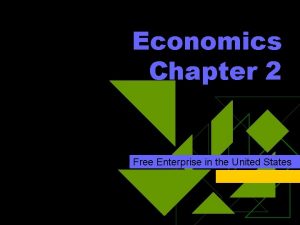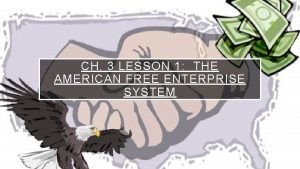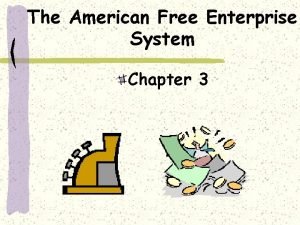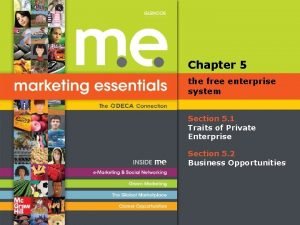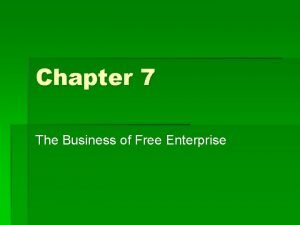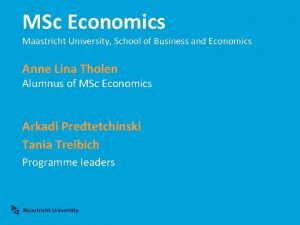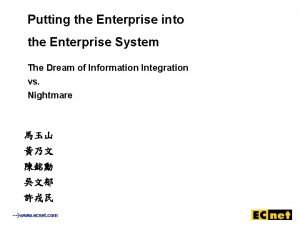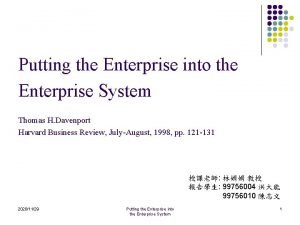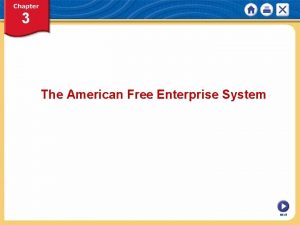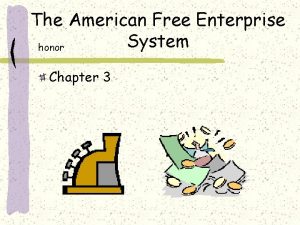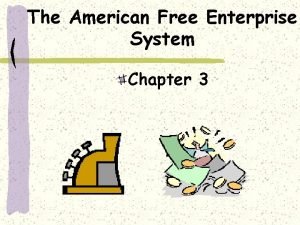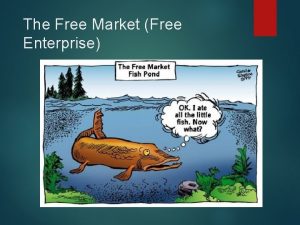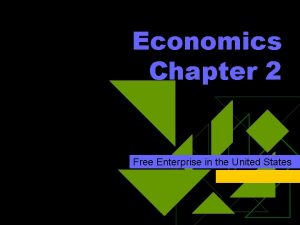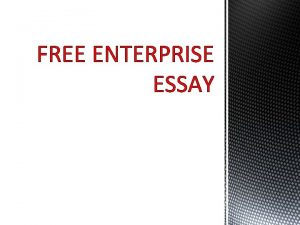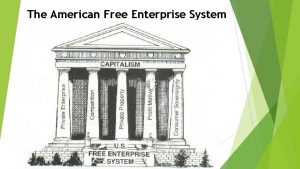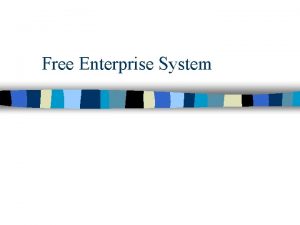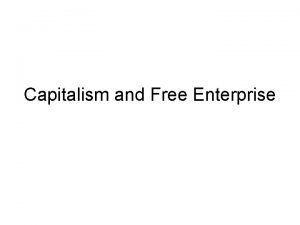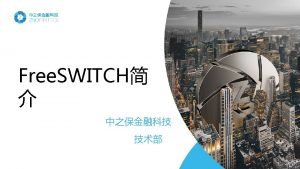Economics Chapter 2 Free Enterprise in the United











- Slides: 11

Economics Chapter 2 Free Enterprise in the United States

Pillars of Free Enterprise u Private property u Entrepreneurship u Price System u Competition (PEPC)

Private Property The right to own property is protected by the U. S. Constitution u HOW private property is used is an important concept to the U. S. economy u u What do you own? n n u How do you care for those items? What if you don’t care for those items? What do businesses own? n n How do they care for those items? What if they don’t care for those items? (do the Private Property L. A. P. now)

Entrepreneurship u Seeing opportunities and acting on them to introduce new or better goods and services to the market u Take risks u Invest time and money in innovative ideas and products u Creativity and innovation are distinguishing traits

Price System Another name for a Market Economy u As buyers and sellers exchange goods, they establish prices u Prices do not necessarily indicate quality of a product u Prices DO tell businesses about the VALUE customers put on a particular product u Prices provide incentives to businesses and consumers. (Businesses want to sell more of higher priced items; Consumers bargain shop to drive prices down. ) u

(Market) Competition ► People in all societies compete for scarce resources and products ► Competition can take many forms, but in a market economy, people compete through voluntary exchange. u Competition resources: n n n for Oil deposits Complex machinery Skilled workers u You can be more competitive: n n Get a good education Develop your talents and skills u Competition for products: n n Every time you spend your earnings, you are competing with other buyers in the products market. Sellers are trying to earn a profit u Competing for buyers to pay the price that is profitable

The Circular Flow (Of Money, Resources, and Products) Goods & Services Households Labor & Other Resources Goods & Services Markets for G&S Household Spending Business Income Wages & Salaries Household Income Markets for Resources Businesses Labor & Other Resources

Money u Medium n Easier than swapping chickens for chairs u Store n of Exchange of Value A wallet is easier to carry than a chicken coop u Measure n n n of Value of your labor Value of a CD player Value of a hamburger

Other Systems u Command System n n n u Traditional System n n n u Definition Example Countries Economist Definition Example Countries “Economist” Mixed System n n n Definition Example Countries Economist • Number off 1, 2, 3 • Take out a sheet of paper • 1’s = Command System • 2’s = Traditional System • 3’s = Mixed System • Shortest person = spokesperson • Share with class 1) definition, 2) Example Countries, 3) Economist

Adam Smith & The Invisible Hand u “The Father of Economics” u Wealth of Nations u An “Invisible Hand” n Best Contributions to the “economic pie” = more slices for themselves Supply u Demand u Voluntary Exchange u

Three Basic Economic Questions: u What…will be produced u How… will it be produced u Who… will receive the goods & services?
 Chapter 2 free enterprise in the united states
Chapter 2 free enterprise in the united states Free enterprise system benefits
Free enterprise system benefits Which is another term for the free enterprise system
Which is another term for the free enterprise system Monopoly is a menace of free enterprise
Monopoly is a menace of free enterprise Chapter 7 the business of free enterprise
Chapter 7 the business of free enterprise School of business and economics maastricht
School of business and economics maastricht What is mathematical economics
What is mathematical economics Putting the enterprise into the enterprise system
Putting the enterprise into the enterprise system Enterprise
Enterprise Modified free enterprise economy
Modified free enterprise economy Free enterprise economy
Free enterprise economy Modified free enterprise economy
Modified free enterprise economy
